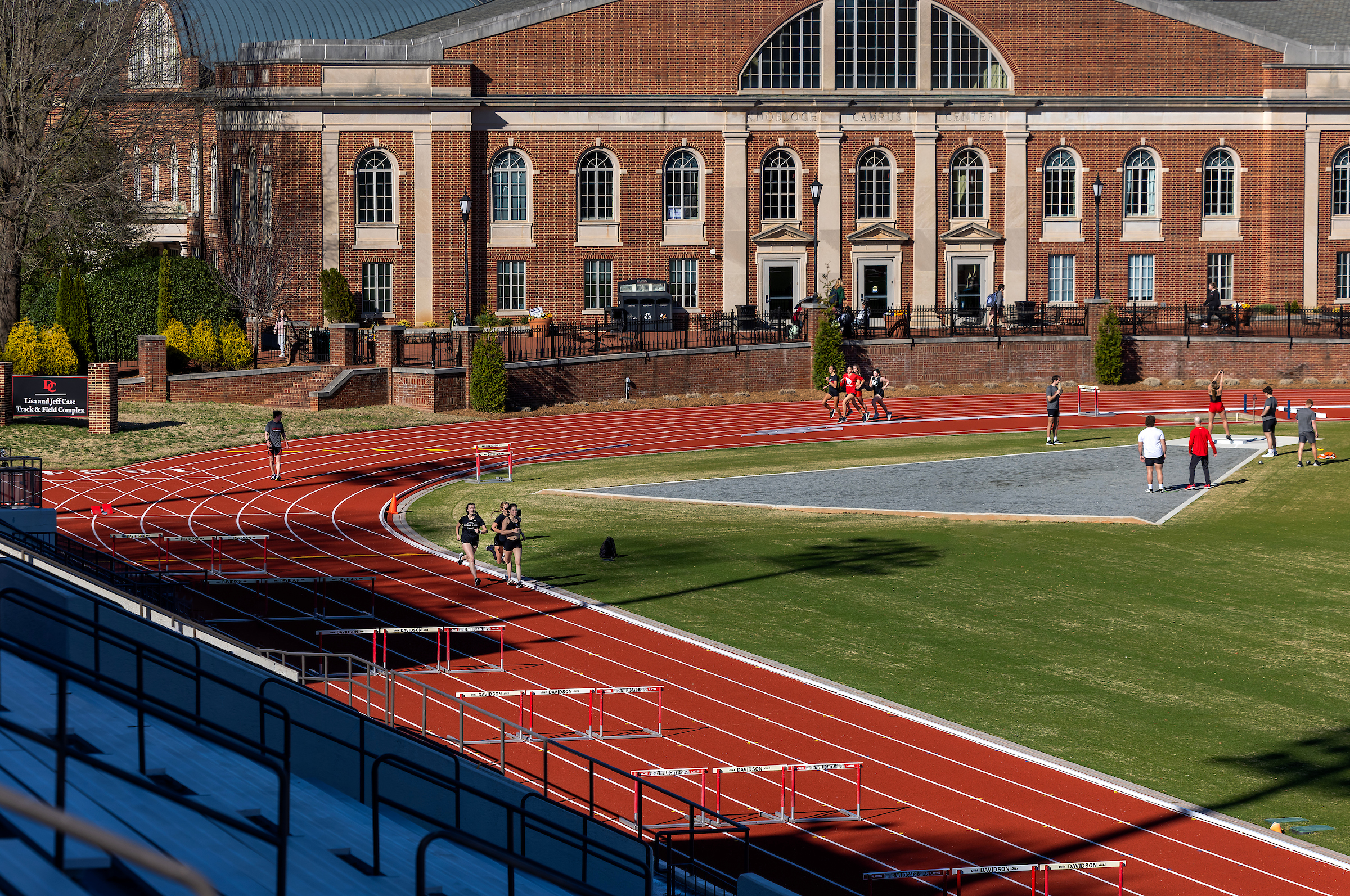Briana Hunter '08 Shines on Some of Opera’s Most Coveted Stages
January 22, 2025
- Author
- Mary Elizabeth DeAngelis
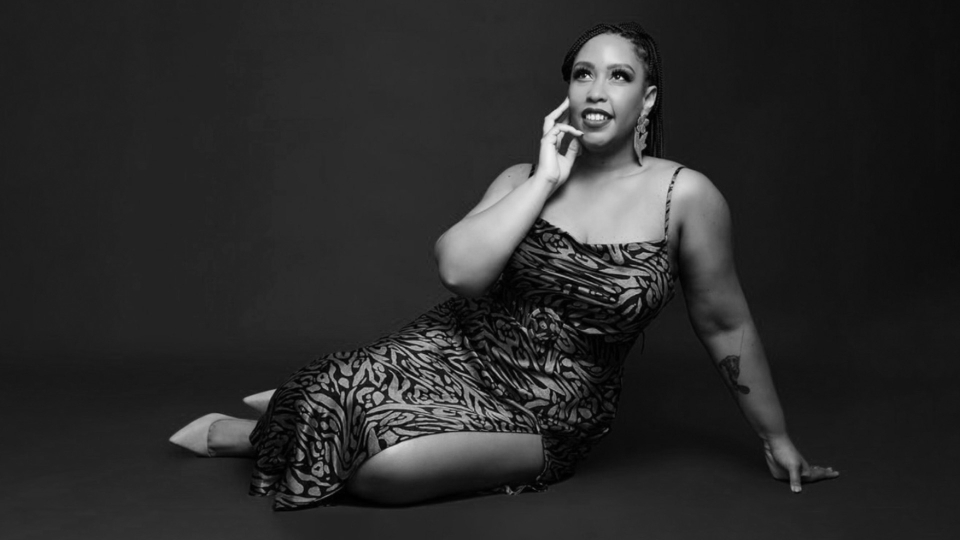
Mezzo Soprano Briana Hunter ’08 has dazzled audiences at the world’s top venues, including the Metropolitan Opera House, Carnegie Hall and the Lincoln Center.
He was a musician. He was a scholar. My Great-Grandfather.
Traded the island heat for the chill of snow.
Every day, he wondered how could it be so cold?
They did not like his violin and did not care for, thoughts from his pen so he operated the lift carrying folks to heights he could never climb. His grievances were many that he seldom shared. He raised his family and gave us his words, his wisdom, his love and he wore a suit to dinner every night.
- From Briana Hunter’s album, De La Chica: Dispersed and Transcendental Chants
When John Hunter emigrated from his Caribbean birthplace to New York City, his early 20th century journal entries depicted the stark contrast between the two lands.
“It’s cold,” he wrote one January day, and added on another. “It’s really cold.”
Later passages described world events: “Hitler invaded Poland,” as well as births, deaths and other family milestones.
As a Black man in segregated America, the classically trained violinist could only dream of performing in a symphony. He worked instead as an elevator operator, ensuring riders got safely from floor to floor.
His great-granddaughter, Briana Hunter ’08 carries his spirit and sacrifices with her as she performs on the world’s top stages. From the Metropolitan Opera House and Carnegie Hall in New York to the Kennedy Center in Washington, D.C., to the Los Angeles Opera, Hunter has dazzled many audiences.
Opera News describes her as “a mesmerizing mezzo-soprano with a fiery theatrical presence and dynamic vocalism.” The New York Times and The Washington Post have collectively described her work as “terrific, thrilling, breathtaking and powerful.” From a modern spin on the classic Carmen to the highly acclaimed modern tragedy Blue, her star continues to rise.
Briana Hunter performs as Mother in the premiere of "Blue" at the The Glimmerglass Festival.
And she recently released her first album, De La Chica: Dispersed and Transcendental Chants, with renowned pianist Eric Sedgwick. It’s an exploration of the history, culture and traditions that arose from the African diaspora, including her own family’s.
In February, the nation celebrates Black History Month. This year’s theme is African Americans in the Arts. The Davidson College community includes Black students, alumni, faculty and staff who are gifted writers, musicians, visual and performing artists. Hunter offers a compelling personal history of how many barriers have toppled since her great-grandfather’s times — and in hers — and how many remain.
“I’ve been really fortunate, I could never have imagined the career I have now back when I was in school,” she said. “So much has changed. Most of the roles I’ve had didn’t exist for a Black woman. To see how these historic institutions like the Met have made this huge shift has been so refreshing.
“I love being on stage, I also want to be part of the creation in opera, plays and other works. It’s never lost on me how incredibly miraculous it is that I’m here. I never take that for granted.”
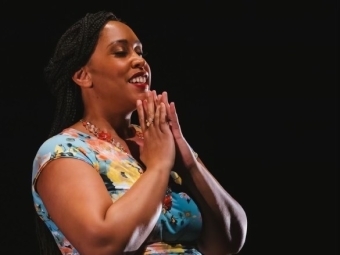
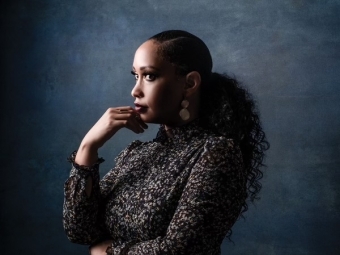
An Artist Evolves
Hunter grew up in Malvern, Pennsylvania, a largely white, middle-class suburb of Philadelphia. Her dad, John Hunter III, was a top executive at QVC Inc. Her mom, Dolores, stayed home with their three children, who participated in a variety of artistic, academic and athletic pursuits.
Briana, the youngest, gravitated toward reading, drawing and music, and would sing whenever the opportunity arose—in the car, the supermarket or on elevators—which her siblings teased her about.
She started acting and singing in school plays in fourth grade and dreamed of a future in Broadway musicals. She starred in productions at Great Valley High School, a public school with a strong theater arts program. She ventured into opera by listening and singing to albums so she’d have a wide musical portfolio to show prospective colleges. A teacher told her she should check out Davidson College, which he called “a hidden gem.”
“My family took a tour of Northern schools, then another tour of Southern schools. We made a stop at Davidson. It had everything I wanted. I loved its small size, I loved the look of it—the beautiful, classic brick buildings, and the Visual Arts Center,” she said. “I loved the warmer climate. I ended up getting involved in so many of the things I saw on the tour, from the acapella group to theater and dance productions.”
She says the variety of her college courses prepared her for what followed.
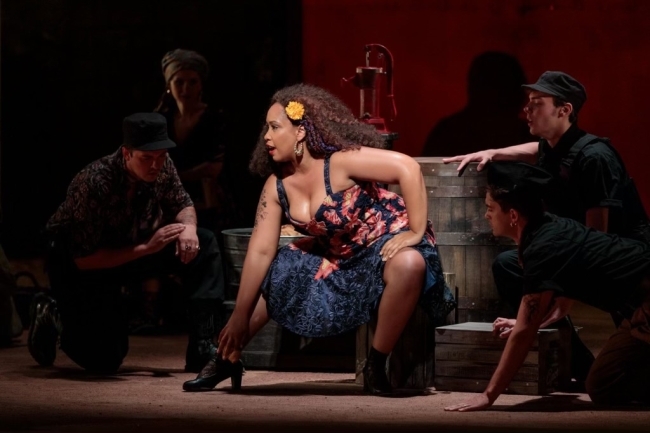
“Davidson allowed me to explore so many options, which has really helped me in my career,” she said. “Opera encompasses everything. It’s so entrenched in literature, history, and fine arts—things you’re exposed to in a strong liberal arts program.”
In college, she considered becoming a doctor or going into law or business, but her father encouraged her to pursue her musical dreams.
“He told me that it’s less of a risk to do what you’re good at and love than something you don’t have an affinity for and would be unhappy doing,” she said. “He told me I’d be fine. He’s always been one of my biggest supporters.”
Davidson professors and mentors describe Hunter as a gifted singer and actor who worked hard at her craft. Jacquelyn Culpepper, assistant professor in the practice of music, specializes in opera and voice instruction and coached Hunter in her opera workshop.
“She always had that star quality,” Culpepper said. “She was beautiful and had a gorgeous voice and was that perfect example of a Davidson student—very smart, and very talented. She was a star in our theater department, too. She tried and explored lots of different areas and was always challenging herself.”
After graduation, Hunter moved to New York, earned a master of music degree from the prestigious Manhattan Music Institute, and began her professional career.
Honoring Past and Helping Future Generations
It’s been nearly 70 years since contralto Marian Anderson became the first Black performer to star in an opera at the Met. Before that and since, many Black artists have faced discrimination in casting and opportunities.
Hunter has had auditions when she’s suspected polite rejections of “you don’t have the voice we’re looking for,” really meant, “you don’t have the skin color we’re looking for.”
She spent her early career performing in respected regional venues across the United States. Her debut season at the Met came in 2021 and included the role of Ruby in Fire Shut Up in My Bones. That made its own history, with Terence Blanchard becoming the first Black composer to lead a Met opera.
Opera is an art that many — especially in underrepresented communities — haven’t been exposed to. Hunter has worked on a variety of outreach initiatives to increase access for artists and audiences. She also helped found the alternative opera company Bare Opera.
She serves as a member of the Davidson Arts and Creative Engagement (DACE) advisory board and has collaborated with professors and students.
“She’s always been loyal to Davidson and so generous with her time despite being incredibly busy,” said DACE Director Sherry Nelson. “Our students have benefitted from having someone at her level spend time with them. She’s such a nice, genuine person who really wants to help other people succeed.”
Culpepper said Hunter exemplifies how talent, passion, hard work and perseverance can lead to a career in the arts. Few reach the level Hunter has; Culpepper compares performing at the Met as an opera singer to playing in the NBA as a basketball player.
“Briana is our Stephen Curry ’10 of opera,” Culpepper said. “Stephen put Davidson on the map for basketball, Briana’s doing that in the opera world. I could not be happier with her success. She is a beautiful person with a beautiful spirit and a beautiful voice.”
Assistant Professor of the Practice in Music
Hunter said she never forgets the people, from her ancestors to activists to other artists, whose struggles created a path for her.
“My great-grandfather didn’t have the access or opportunity to have a professional career in music,” she said. “I always wonder what could have been. His generation and the ones that came after worked hard and did what had to be done in hopes that the next generation would fly further.
“As the saying goes, ‘we are our ancestors’ wildest dreams.’ But we’re not done. I hope that I can help pave the way for the next generation.”
This article was originally published in the Fall/Winter 2024 print issue of the Davidson Journal Magazine; for more, please see the Davidson Journal section of our website.


